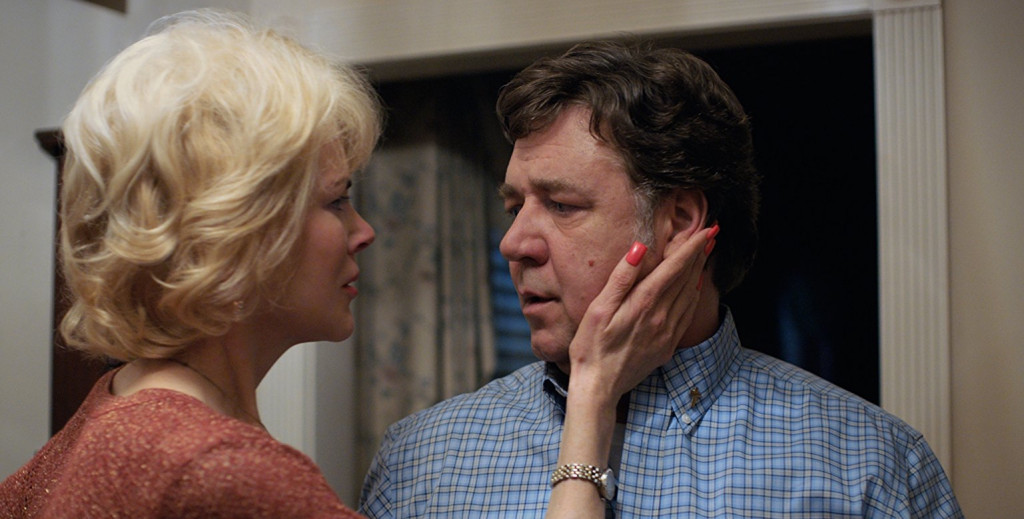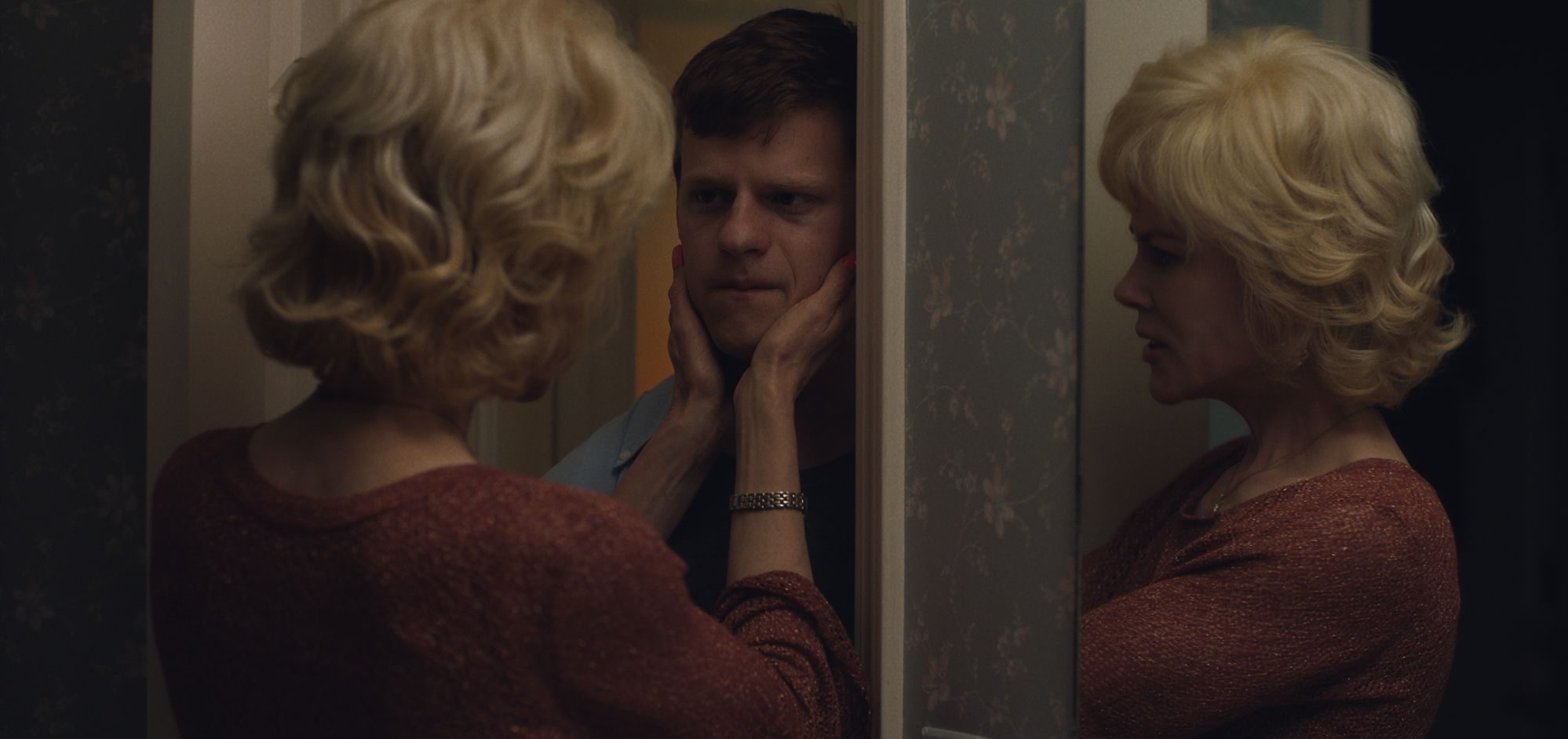Helmed by Joel Edgerton, Boy Erased is one of the profound pieces of cinema that extends its hands beyond the screen and resides with the audience in their souls. The film follows the journey of a young gay man, Jared Eamons, born to a Baptist preacher, Marshall Eamons, and Nancy Eamons. Failing to come to terms with his sexual orientation, they send him to a gay conversion therapy assessment program called Love In Action (LIA) in Memphis, Tennessee. Jared’s time in the institution is riddled with mental, physical, and psychological abuses unleashed upon him and his fellow “trainees” as they are “corrected.”
The 2018 film is thoroughly fraught with tension and aims to unsettle the audience and forces them to look behind the facade of such institutions. Lucas Hedge’s nuanced portrayal of the complex character of Jared Eamons, coupled with his lonely eyes and elegant manners, garnered a lot of appreciation from viewers and critics alike. Moreover, the compelling performances by Nicole Kidman and Russell Crowe as Nancy and Marshall, whose helplessness and desperation to “pray away” their son’s homosexuality, are dealt with with regard and not disdain. The ostracization of the gay community is a sad truth that all of us are aware of.
Boy Erased is Based on the Real-Life Journey of Garrard Conley
‘Boy Erased’ is based on a true story. The film is an adaptation of the eponymous 2016 memoir by Garrard Conley, who grew up in a fundamentalist family living in an orthodox small town in Arkansas and was sent to conversion therapy by his parents. Along with his childhood experiences, the autobiography reflects on the time the author inched closer to freedom when he set foot in college. The book is riveting in its tone but not hateful. Conley looked beyond the actions of the people and engaged with their complexities. Yet, he does not forget his own sufferings and narrates them in a suitably haunting manner, and this is the sentiment that translates to the movie as well.

As depicted in the film, Conley was sexually assaulted by one of the students who also outed him to his parents. In an interview with The Guardian, he revealed, “The knowledge of my homosexuality would seem more shocking than the knowledge of my rape; or, worse, it would seem as though one act had inevitably followed the other, as though I’d had it coming to me.” Conley added that in a perplexed state of affairs at home, his father made him choose between being disowned or attending conversion therapy. In the book, he recounts his time in the institution and delves into the abuses that were committed in the name of reformation. The 2018 film touches upon the same in a sensitive manner.
Having said that, the Joel Edgerton directorial does depart from the book in some instances. The scene wherein a fellow ‘student’ named Cameron (Britton Sear) is emotionally manipulated with a fake funeral and beaten with Bibles is not from the book. Additionally, the scene in which guards dunk a young man’s head in the water and Jared is physically held back from helping him are also extensions of creative freedom taken by Edgerton, who also serves as the screenwriter. Besides a few theatrical exaggerations in a few scenes, the narrative remains true to Conley’s memoir.
In another interview with The Guardian, the Australian actor-writer-director confessed that he had apprehensions about telling the story of a community that he was not a part of. As his interactions with Conley grew and he extended his research, Edgerton’s directorial dream was no longer a far-fetched reality. He said, “It was like, I feel so passionate about it and I can’t get this out of my head.” The director paid detailed attention to the sensitivities of the gay community and even sent the movie to GLAAD, an organization overseeing the media coverage of LGBTQ+ individuals.
Interestingly, Edgerton also played the disdainful character of Victor Sykes, the Chief Therapist at LIA. The character is based on John Smid, the real-life director of an ex-gay ministry by the name of ‘Love In Action.’ Smid worked with the ministry from 1986 till 2008. A few years after he resigned from the position, in 2010, he publicly apologized for the harm he caused and is now living as an openly gay man with his husband, Larry McQueen, in Texas. Through the character of Sykes, the film brings to light the fact that the people who operate conversion institutions often project self-hate and their bigotry through violence, abuse, and degradation of other people.

It is the aforementioned duplicity that Conley set out to expose with his memoir, and the film carries the legacy forward with its portrayal of characters like Victor Sykes, Nancy, and Marshall Eamons. As the parents battle with their religion and their love for their son Jared, they set out on their own subversive journey. Even though they believe God tells them that their son is abominable, they are unable to separate themselves from him. As Nancy rescues Jared, she has not fully understood him, but she is adamant about protecting her son from a place that took away the light from her son’s eyes.
Bridled with fear for his soul, Marshall is not able to accept his son, which results in Jared furthering himself from his father. Exactly like Conley, Jared finally finds an enthralling medium to communicate his truth not only to his father but to the world, aiming to extend an olive branch to all the families and people who might need the revelation. Interestingly, the author dedicated the memoir to his parents. As for his current relationship with them, Conley, who resides in New York with his loving husband, is quite close to his mother. However, in an interview with Fatherly, he revealed that his father “hasn’t made all the steps that I consider to be necessary for a real act of forgiveness to take place.”
Read More: Best LGBTQ Movies on Netflix


You must be logged in to post a comment.